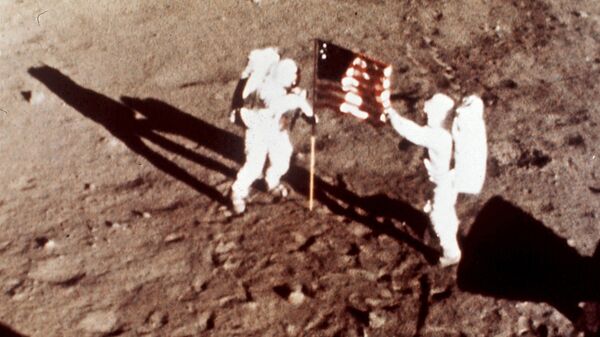The price of the tapes is 8,000 times more than what former NASA intern Gary George paid for the footage in a 1976 government surplus auction, Sotheby’s reported. George was interning at NASA while studying engineering at Lamar University in Texas.
The three tapes purchased by George were labeled “APOLLO 11 EVA | July 20, 1969 REEL 1 [–3]” and “VR2000 525 Hi Band 15 ips.” According to the auction house, the videos are the "earliest, sharpest, and most accurate surviving video images of man's first steps on the moon.” However, the auction house did not reveal who purchased the recordings.
"Fifty years ago today, we achieved the world's greatest human accomplishment, and what we universally recall about that event is best documented on these tapes," Cassandra Hatton, vice president and senior specialist in Sotheby's Books & Manuscripts Department, said in a Saturday release. "We are truly over the moon about today's outstanding result."
The tapes, which were recorded at NASA’s Mission Control Center in Houston, Texas, show images of American astronaut Neil Armstrong taking his first step on the moon in 1969, followed by lunar module pilot Buzz Aldrin. Apollo 11 was the spaceflight that landed Armstrong and Aldrin on the Moon on July 20, 1969.
“Since the camera had to be deployed before Armstrong and Aldrin exited the Lunar Module (LM) if it was truly going to capture their first steps on the surface of the moon, the camera was stowed in a shock-proof and insulated mount on the LM’s Modularized Equipment Stowage Assembly (MESA),” Sotheby’s said in the statement.
“Armstrong released the MESA when he first peered out of the LM, so that the camera would be in position to capture his slow descent down the ladder and onto the lunar surface. The two astronauts later removed the camera from the LM and mounted it on a tripod to capture a wider view of the LM and their activities and experiments,” the statement adds.
The footage is around two hours and 24 minutes long and also shows the historic planting of the American flag on the lunar surface.
“The present videotapes are the only surviving first-generation recordings of the historic moon walk, and are sharper and more distinct than the few tapes that have survived from the contemporary network television broadcasts,” Sotheby’s said in its statement.

